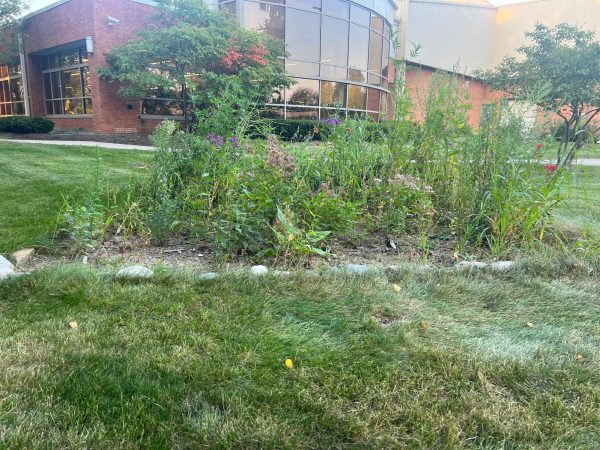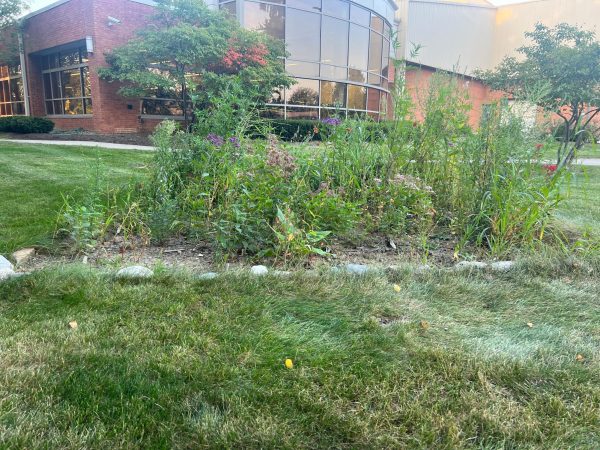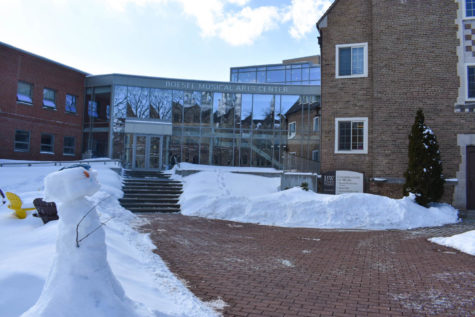Sustainability committee returns under new name
The Sustainability Committee, formerly known as the Campus Sustainability Committee, was re-established by sophomore sustainability major Emma Stamper with the help of David Kruger, professor and co-director of BW’s sustainability program, after almost three years of inactivity.
In October, two Baldwin Wallace students resurrected the Sustainability Committee after it was placed on a temporary hiatus due to Covid-19 shutting down on-campus activities in 2020.
The Sustainability Committee, formerly known as the Campus Sustainability Committee, was re-established by sophomore sustainability major Emma Stamper with the help of David Kruger, professor and co-director of BW’s sustainability program, after almost three years of inactivity.
The name was changed during the transition from previous management before the committee was put on hold to the current leadership. Despite the name change, the committee’s goals are similar.
According to Krueger, the Sustainability Committee’s goal is “to embody practices and principles that demonstrate our commitment to the environment.”
During the first meeting, which took place on Oct. 20 in the Center for Innovation and Growth, the topics of renewable energy, increasing biodiversity on campus and increasing student awareness about what has already been done in the field of sustainability were discussed.
Emily Shelton, a sustainability major, said that this committee is important to students looking for a place for involvement with environmental action at BW because the University did not always have these opportunities for students.
The Sustainability Committee has experienced some challenges. One challenge they are facing is skepticism, said Annette Trierweiler, an assistant professor of environmental science.
“The difficult part is helping people who may be skeptical to see why everyone benefits and how it saves money if we are intentional in our approach,” Trierweiler said.
Awareness is another ongoing issue in BW’s efforts to become a more sustainable campus.
“People simply do not know about all that has been done,” Trierweiler said. “From five geothermal well fields to composting kitchen waste to EV charging stations to numerous rain gardens around campus.”
The committee intends to have monthly meetings and is open to faculty, administrators and all students regardless of major or graduation class.
“That is what I like about the committee,” Trierweiler said. “There are students and professors from all sorts of disciplines there seeing what we can do together.”
Though the Sustainability Committee is one of several environmental science and sustainability organizations available on-campus, not all organizations are represented as official organizations on the University’s website despite recognition at the involvement fair in August.
Currently, only three sustainability organizations recognized at the annual involvement fair are represented on the BW website under the clubs and organization page as official organizations on campus.
Students, especially those in the environmental science and sustainability fields, such as Shelton, find it “really difficult” to be involved around campus because of the lack of recognition for environmental organizations.
While the committee meetings have already started, the committee is still open for involvement. The Sustainability Committee’s next meeting will be on Nov. 17 in Room 105 in the C.I.G.
The Exponent is looking for financial contributions to support our staff and our newsroom in producing high-quality, well-reported and accurate journalism. Thank you for taking the time to consider supporting our student journalists.














































